An Interview with Cara Sue Achterberg
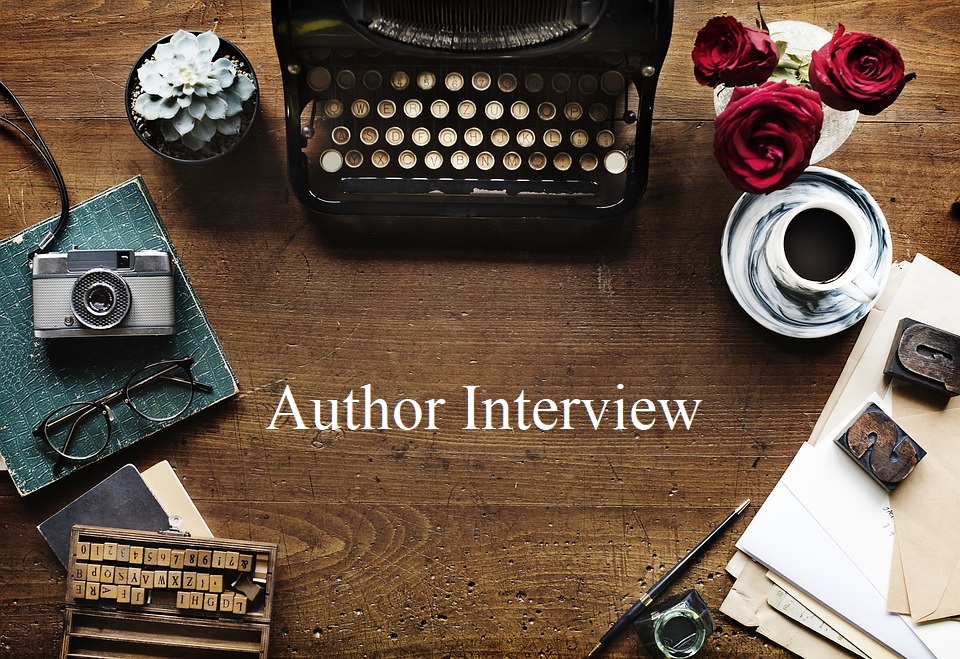 I’ve never met Cara Sue Achterberg in real life, but if I did, I think we’d be fast friends. She describes herself as “an irrepressible writer, a curious cook, a lazy gardener, a loyal friend, a dog trainer in training, and an occasional cowgirl.” With a set of interests as diverse as those, she’s sure to connect to just about anyone. And connect she does with her writing. Cara is the author of multiple works of fiction and nonfiction (some that deal with dogs!), and her newest novel, Blind Turn, was released last week on January 7. Cara also blogs about her adventures as a foster dog family, and is the founder of Who Will Let the Dogs Out, an organization that “seeks to share the faces and stories of the forgotten dogs waiting to be let out, and to raise resources and awareness for the people who are working to save them.” With so much on Cara’s to-do list—she’s also a creative writing teacher—I’m grateful she had the time to chat with me and answer my questions.
I’ve never met Cara Sue Achterberg in real life, but if I did, I think we’d be fast friends. She describes herself as “an irrepressible writer, a curious cook, a lazy gardener, a loyal friend, a dog trainer in training, and an occasional cowgirl.” With a set of interests as diverse as those, she’s sure to connect to just about anyone. And connect she does with her writing. Cara is the author of multiple works of fiction and nonfiction (some that deal with dogs!), and her newest novel, Blind Turn, was released last week on January 7. Cara also blogs about her adventures as a foster dog family, and is the founder of Who Will Let the Dogs Out, an organization that “seeks to share the faces and stories of the forgotten dogs waiting to be let out, and to raise resources and awareness for the people who are working to save them.” With so much on Cara’s to-do list—she’s also a creative writing teacher—I’m grateful she had the time to chat with me and answer my questions.
Christina: Congratulations! Your latest novel, Blind Turn, launched last week! How does this book differ from your other work? Are there any similarities? What inspired you to write it?
Cara: This book differs from my other stories in that it has an element of legal-suspense. The romantic storyline is probably a little stronger too. It’s similar to my first book, I’m Not Her, in that I rewrote it from different points of views multiple times before landing on the version I wanted to go with. In this case, I wrote it first from the mother’s perspective, then the daughters (as a YA), and then blended the two for the ultimate version. It’s similar to all my books because at its heart, it is a family drama.
I was inspired to write this book after following the story of a local tragedy. A young driver hit an Amish buggy, killing the entire family. The driver survived, but there was little explanation for the cause of the accident. The thought of that driver and his family haunted me as I was in the midst of teaching my own teens to drive at the time. I wondered how you find forgiveness after a tragedy like that—whether it was even possible.
Christina: You’ve written fiction books, nonfiction books, blog posts, and more. Is one genre easier for you to write? If so, why do you think that is?
Cara: Blogs are the easiest thing for me to write, hence my plethora of them! In a blog, I get to spill out my thoughts and emotions unchecked. Writing blogs has taught me to be a brave writer and to trust my readers with my wide-open heart. I suppose blog writing is easier because I don’t have to please an agent or editor; I can speak directly to a reader. Also, because the posts are about real life—what is happening, what I’m thinking, what I’m questioning. Plus, they enable me to connect regularly with my readers, which is always the pay-off for me in all my writing. I want to touch hearts—I want to make a reader’s life richer for having encountered my words.
Christina: Speaking of different genres, your novels are “women’s fiction written from the heart to explore truths we all face in our everyday life—Who am I really? What is love? and What really matters?” Do you discover any truths about yourself as you explore truths in your characters? Have you ever been surprised by what you discovered about yourself?
Cara: Great questions. Yes, I think in a weird way, writing fiction is my therapy. I sort through all kinds of issues. It’s safe to do that with a character; it allows me to explore my options, ask hard questions, and test out answers. In writing Blind Turn, I learned a lot about forgiveness. How it is not so simple and how accountability, retribution, and penance are ingrained in our culture. Forgiveness is extremely complicated and powerful; it’s also simple and accessible, but it requires trust and courage. In fact, I think forgiveness is the undercurrent of our lives, and without it we can never move forward; we can never truly love others or ourselves.
As I wrote this story, I was surprised to discover how I withheld forgiveness myself, waiting for some kind of penance. It was incredibly freeing when I realized it was so available all along. All I had to do was recognize that. I also began to understand that forgiveness many times has nothing to do with the person who has wronged you and has everything to do with your ability to let go of the ingrained need for penance.
Christina: Fostering dogs is a huge part of your life. How did you first get started fostering? What have you learned from the dogs who have been placed with you? What do you feel these dogs have learned from you?
Cara: We got started fostering when we began looking to adopt a dog after our family dog of seventeen years passed. A lot had changed since we adopted her, and I discovered the foster dog “system” of rescue. Initially, we thought we’d “try out” dogs by fostering them until we found the right dog, but once I learned how many dogs’ lives were in danger and how many were suffering and dying in the south, I couldn’t stop fostering.
From those dogs I’ve learned a lot about patience and about the reality that we can only do as much as we can do. I’ve learned that every dog is an individual and assuming anything about them based on their species or supposed breed is dangerous. I’ve also gotten to know and appreciate people from all walks of life I might have never encountered if not for our mutual desire to save dogs. Mostly, though, they also are a lesson in forgiveness. Dogs offer it so generously. They love us despite our flaws and all the ways humans have failed them.
I hope the dogs that have passed through our home have learned safety and love and that people are worthy of their trust.
Christina: In one of your recent blog posts, you talk about finding the focus to write, which can be incredibly difficult, especially in these strange times. You mention escaping to Chateau Frankie, a cabin nestled “on six isolated acres sandwiched between Shenandoah National Park and the Shenandoah River.” On days when you’re stuck at home with a full house, what do you do to find that focus? Do you have a writing routine that helps you push through times when your focus is lacking?
Cara: On the days when I can’t find focus, I still write. I write with the full awareness that what I’m writing is probably awful. I believe in the discipline of writing every day. We need to exercise our “writing muscles” to keep them limber and strong. It’s an enormous challenge to take what you are thinking and feeling and put it into words that clearly capture those thoughts and emotions. Not many people can do it—and the only way you can is if you work at it over and over, strive for those 10,000 hours it takes to master something. The other motivator to write even when I’m struggling to focus is that familiar adage—you can’t edit a blank page. If I have something to work with, even something horrible, there is at least a possibility that I can make something of it.
Christina: What does literary success look like to you?
Cara: For me, literary success is touching lives. I know that sounds corny, but when a reader tells me that my words spoke to her heart or that she learned something or that she was inspired to foster a dog or treat someone differently, that is success. Writing and opinions about writing are completely subjective. As much as I’d like the respect of other writers, I realize that we are an insecure quirky, jealous, and judgmental breed; so there is no way I will find success if I’m looking for universal respect and admiration from my peers. That said, I work on a daily basis to overcome those tendencies in myself. I want to lift up other writers and cheer them on, so I’m intentionally generous with my time and words and encouragement. I get that opportunity when I teach creative writing—something I love to do. Plus, I’ve long ago come to terms with the reality that there is very little money to be made writing, so you have to find a different measure. And for me that is using my words to reach hearts and change lives.


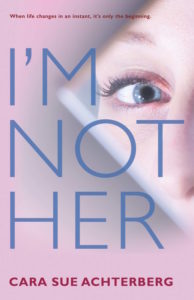
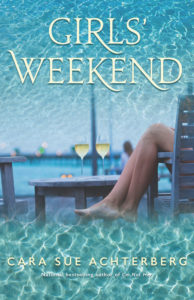
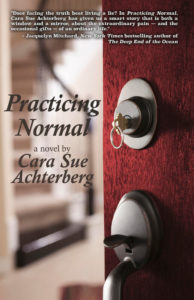
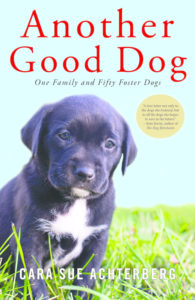
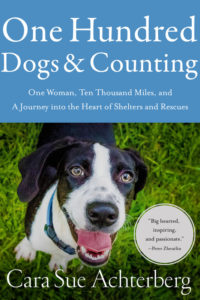
Thanks to Cara for agreeing to this interview! If you know of an author who’d like to be featured in an interview (or you are an author who would like to be featured), feel free to leave a comment or email me via my contact page.
